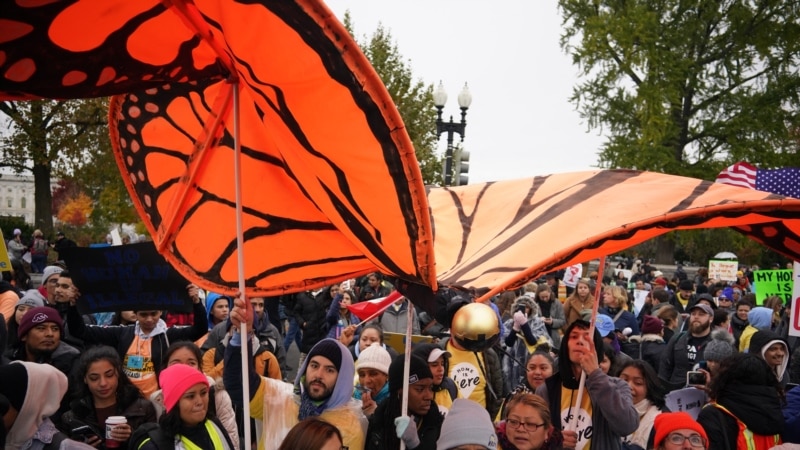
The Deferred Action for Childhood Arrivals (DACA) Program celebrated 11 years this Thursday since it was established as a “relief” for undocumented immigrants who came to the United States as children at the will of their parents. Former President Barack Obama offered this path on June 15, 2012, which at that time would cover some 650 young people.
On this anniversary, a bipartisan group of congressmen presented in Washington a new bill called the “American Dream and Promise Act,” which would aim to protect some 580,000 immigrant DACA recipients after numerous legal battles.
The Democratic representative of Texas Sylvia García considered that it is a “historic” legislation that would guarantee once and for all the definitive legalization of those known as dreamersMany of these adults, or dreamers, work in different sectors such as the armed forces, education, and health services.
“The future of the dreamers is still in limbo, Congress must act now,” said the legislator when calling on her colleagues in the Lower House to legalize these immigrants in “the land they consider theirs” where they grew up.
From 2012 to 2023, DACA has been the center of several legal and political battles with the immigration issue in between. Despite having approved legislation in both chambers of the Federal Legislature to offer a definitive solution to these immigrants, the bills have not exceeded the adjusted majority in both chambers, especially due to the republican opposition.
The program only covered immigrants who arrived in the US before their 16th birthday, and who had remained continuously in the territory for five years prior to the start date of the registration plan. Work permits and legal stay in the country are renewable every two years.
United States Citizenship and Immigration Services (USCIS) also outlined the criteria of eligibility, such as being under 31 years of age on the opening date of DACA, being a high school graduate in the US or still in school education and having a clean record. The program did not admit youth who had criminal charges or problems with the law.
Former President Donald Trump DACA was abolished on September 5, 2017 because it considered that a “reliable application of immigration law” had not been followed in order to establish “safe communities.”
Although he said that “I am not in favor of punishing children, or most of them who are already adults, for the actions of their parents (…) but we must also recognize that we are a nation of opportunities because we are a nation of laws.”
That decision triggered a series of lawsuits that have not been concluded to date and for which the program remained in force thanks to precautionary measures and adjustments under executive orders of President Joe Biden when he arrived at the White House, which also entered lawsuits promoted by his opponents from anti-immigrant sectors.
Isaías Guerrero, a Colombian living in Washington, comments to the voice of america that despite the uncertainty generated by the ongoing legal proceedingsbeing a DACA beneficiary allows them to work legally and insert themselves into American life, although there is still concern about the future of the program and the roads that are still closed to obtain permanent residence.
USCIS has periodically adjusted the procedures in accordance with judicial resolutions to continue with the legal stay of the more than half a million immigrants sheltered under this program.
Connect with the Voice of America! Subscribe to our channel Youtube and activate notifications, or follow us on social networks: Facebook, Twitter and Instagram.


![[Img #74664]](https://thelatestnews.world/wp-content/uploads/2024/12/James-Watson-The-controversial-genius-behind-the-double-helix-150x150.jpg)









